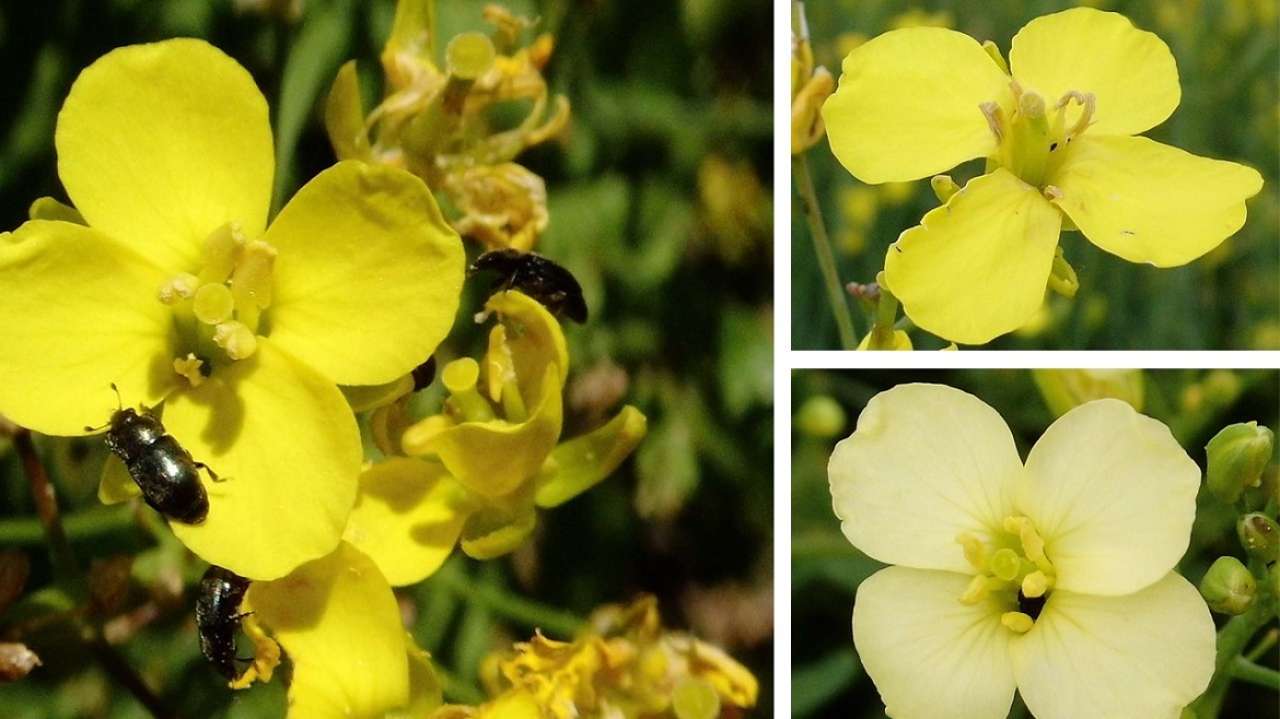Volatile-assisted trap cropping

Pollen beetles Brassicogethes spp. on spring oilseed rape and turnip rape during flowering. Flowers of different shades of yellow attract beetles differently
Photos: Gunda Thöming
Pollen beetles are major pests in oilseed rape production. The beetles are one of the reasons why in Norway still relatively few oilseed rape is produced. A big challenge for the farmers is that pollen beetles have developed resistance against traditional chemical pesticides.
The use of a trap cropping system combined with plant volatile – traps against the pollen beetle might be an alternative pest management tool to reduce the pest, and perhaps in the long term a part of an anti-resistance strategy.
With this trap cropping strategy, we lure the pollen beetles away from the oilseed rape crop and attract them towards the trap crop plants, which are planted as a kind of frame around the oilseed rape field.
Pollen beetles locate their host plants, such as oilseed rape and turnip rape, with the help of specific plant volatiles and the yellow colour of buds and flowers. Particularly the buds and the early flowers are attractive for the beetles. Pollen beetles are very sensitive towards odours and colour. The beetles can differentiate between shades of yellow which look very similar for us.
We have developed and tested a strategy where we cultivated turnip rape as trap crop around an oilseed rape field. The trap crop has a very particularly odour and nuance of yellow and was highly attractive for the pest. As a result, we were able to keep the amount of beetles in the oilseed rape crop below the economic damage threshold, while the pest gets attracted to the turnip rape border of the field. Beetles in the trap crop were removed with insect traps.
The insect traps were attracting the beetles based on a combination of a particular plant odour and yellow colour. Using turnip rape as a trap crop and eradicating attracted beetles with the help of these insect traps was as effective as compared with whole fields treated with a standard traditional pesticide.
Contacts

Links
Homepage of CSALOMONContacts

Publications
Abstract
No abstract has been registered
